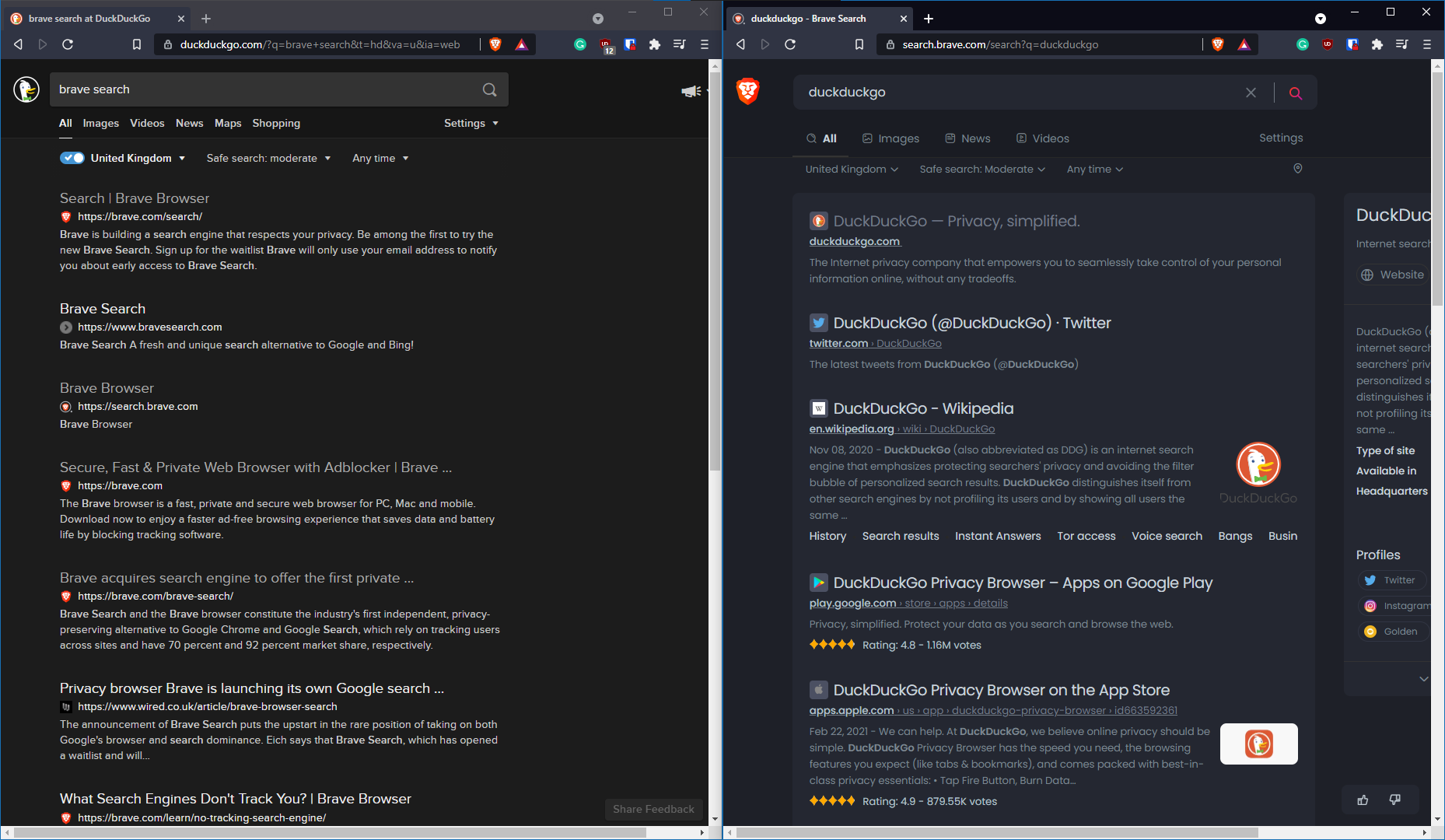A first look at Brave Search

I’ve been a DuckDuckGo user since around 2017 and a Brave user since late 2018.
With the announcement of the Brave Search engine in March I was excited to see what spin Brave has on the search engine and after the cock-up Microsoft made with Bing with it “accidentally” censoring one of the most iconic photos of the 20th century (DuckDuckGo uses Bing as one of its search providers) I decided that I should also explore other engines that weren’t just the top two (Google and Bing) so that leads me to Brave Search.
Currently, Brave Search is in Beta which means that it may will change from this first look though this is how it stands as of early June 2021.
First impressions
The first impressions of Brave Search were that it was very US centric with it defaulting to US Imperial units rather than Metric, though this can be changed with a quick switch though in my opinion, it should be Metric by default rather than US Imperial since most of the world operates on Metric units and Brave Search also defaults to the US for its search region while DuckDuckGo defaults based on your IP location.
Search results from both engines are similar when configured identically though Brave Search seems to be more relevant, in fact, Brave Search as a similar UI to DuckDuckGo but the spacing is different. Brave Search seems to limit the amount of results that it can display without a way of loading more results which can be annoying as it can feel like it’s actively restricting what you can do with that query.
UI issues
Though this section is subjective, I have a few issues that I have with Brave Search’s interface. First of which is the spacing of website listings, though some will like its large spacing, I personally think that it wastes too much screen space so I believe that Brave should have different viewing densities like GMail so that I can have the spacing of the listing tighter.
Brave Search in Dark mode also lacks in contrast between text and the background and while this isn’t much of a problem for me, it may present usability issues for some as the text is a darker shade of grey than what we would usually see in dark modes which can make the results hard to read for some.
Features that I wish would be in Brave Search
Though I don’t expect Brave to implement these, it would be nice to see these in the search engine.
DuckDuckgo’s !bangs
!bangs are awesome and they allow me to search on other websites from DuckDuckGo, I would love to see a similar feature on Brave Search as it makes it quicker and easier to search on other sites from my Omnibar (this is what Chromium calls that bar which allows you to type web addresses and search at the same time) without needing to type out the website because I can just do it with a letter plus an exclamation mark.
Startpage’s proxy
Startpage is another privacy search engine that has an anonymous view which is a proxy view in your web browser. This could act as another layer of protection to Brave as it loads the website from Brave’s site rather than yours which can help prevent ISP snooping.
Google’s reverse image search
Google’s reverse image search is one of the last uses of Google for me as it allows me to find higher resolution versions of images or find the original source of an image and currently non of the privacy-focused search engines having this feature (as far as I’m aware). If Brave Search implemented this feature, it would completely remove my need for Google as a search engine.
In conclusion
The new search engine looks to be an engine that has a similar look and feel as DuckDuckGo. It currently (in my opinion) doesn’t have a standout that would make people want to switch to it rather than staying with DuckDuckGo or Startpage. We’ll see how the new search engine evolves out of beta and see if it has the features needed to differentiate it from the competition. It also remains to be seen what Brave uses for indexing though, by default, it doesn’t use Google though this can be enabled in the settings.
